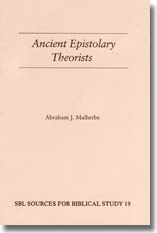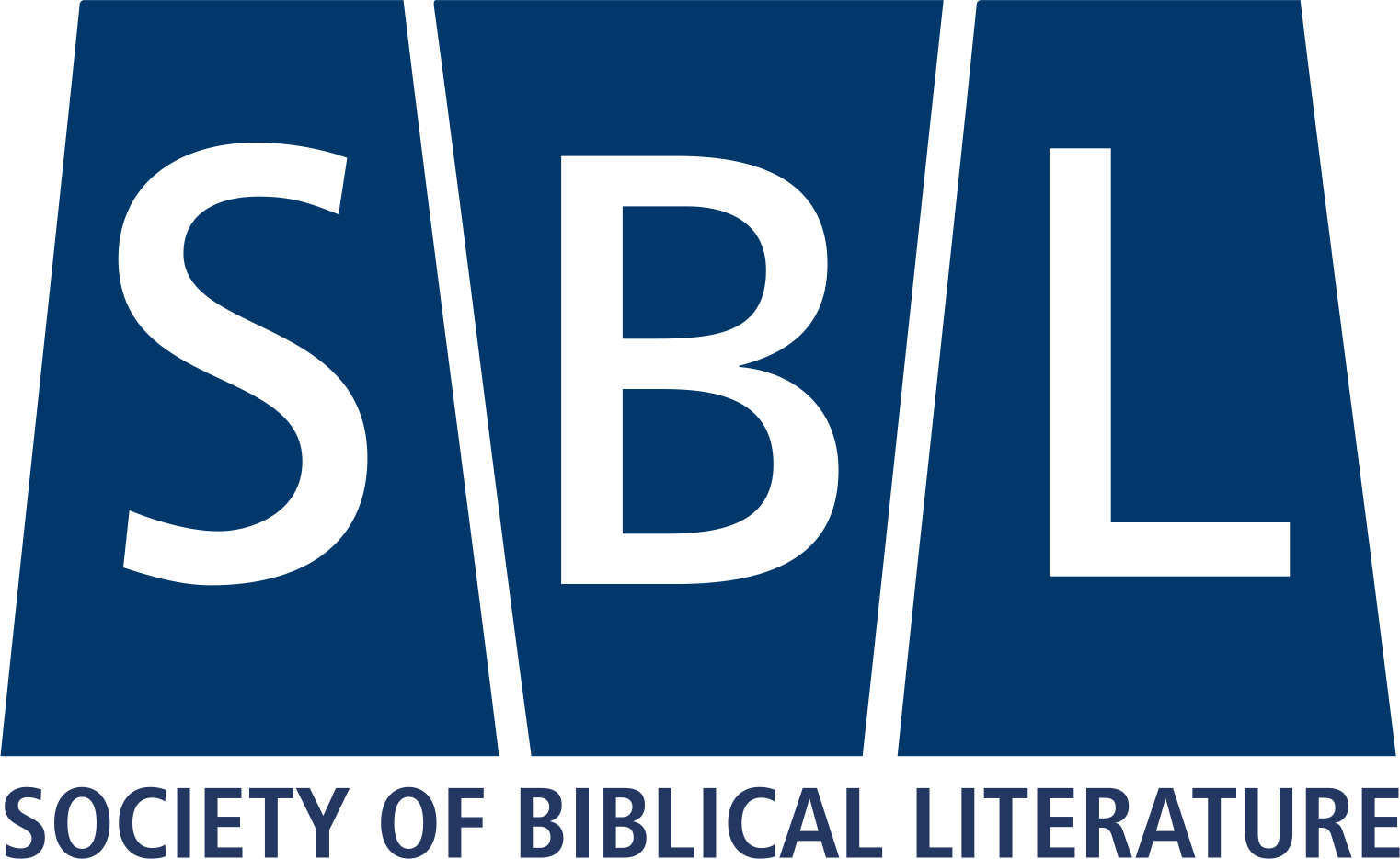SBL Press Bookstore

Ancient Epistolary Theorists
Abraham J. Malherbe
ISBN
9781555401368
Volume
RBS 19
Status
Available
Price
$21.00
Publication Date
January 1997
$21.00
This volume makes available in a convenient facing-page format the original texts and new translations of significant primary resources on the ancient theory of writing letters. After introducing epistolary theory, rhetoric, and letter writing in the schools, Malherbe provides the texts and translations of Demetrius, De Elocutione; excerpts from Cicero and Seneca; Pseudo-Demetrius, Epistolary Types; Philostratus of Lemnos, On Letters; Bologna Papyrus 5; Gregory of Nazianzus, Epistle 51; Julius Victor, On Letter Writing; and Pseudo-Libanius, Epistolary Styles.
Abraham J. Malherbe, Buckingham Professor Emeritus of New Testament at Yale Divinity School, is the author of numerous works concerned with the literary and social dimensions of ancient literature and with Greco-Roman philosophy, including Moral Exhortation: A Greco-Roman Sourcebook (1989), Letters to the Thessalonians (Anchor Bible; 2000); and Social Aspects of Early Christianity (2nd ed.; 2003). He is also the editor of the The Cynic Epistles: A Study Edition (1977) and the honoree ofEarly Christianity and Classical Culture: Comparative Studies in Honor of Abraham J. Malherbe (2003).
“Some events which turn out to be landmarks attract only modest attention at the time of their occurrence. Such, I believe, is the case with Malherbe’s publication of texts and translations on ancient letter writing. A. Deissmann’s publication of ancient papyrus letters from Egypt had a profound effect on modern understanding of the NT. His work provided a major impetus toward freeing the NT writings from the matrix of traditional theological discourse and placing them within their ancient historical-literary context. It is widely recognized that Deissmann’s social and literary context was too narrow. Malherbe’s collection of ancient texts on the theory of writing letters and his summary of the material is a significant and much needed corrective to that narrowness. There is good reason to hope that Malherbe’s collection of documents will affect NT studies as widely as Deissmann’s collection. … The translations are exemplary. This is quite an achievement, especially for the two handbooks with their extraordinarily elliptical and allusive prose. … The volume will be invaluable for scholars and students of early Christian letters alike.”
—Stanley K. Stowers, Catholic Biblical Quarterly
Abraham J. Malherbe, Buckingham Professor Emeritus of New Testament at Yale Divinity School, is the author of numerous works concerned with the literary and social dimensions of ancient literature and with Greco-Roman philosophy, including Moral Exhortation: A Greco-Roman Sourcebook (1989), Letters to the Thessalonians (Anchor Bible; 2000); and Social Aspects of Early Christianity (2nd ed.; 2003). He is also the editor of the The Cynic Epistles: A Study Edition (1977) and the honoree of
“Some events which turn out to be landmarks attract only modest attention at the time of their occurrence. Such, I believe, is the case with Malherbe’s publication of texts and translations on ancient letter writing. A. Deissmann’s publication of ancient papyrus letters from Egypt had a profound effect on modern understanding of the NT. His work provided a major impetus toward freeing the NT writings from the matrix of traditional theological discourse and placing them within their ancient historical-literary context. It is widely recognized that Deissmann’s social and literary context was too narrow. Malherbe’s collection of ancient texts on the theory of writing letters and his summary of the material is a significant and much needed corrective to that narrowness. There is good reason to hope that Malherbe’s collection of documents will affect NT studies as widely as Deissmann’s collection. … The translations are exemplary. This is quite an achievement, especially for the two handbooks with their extraordinarily elliptical and allusive prose. … The volume will be invaluable for scholars and students of early Christian letters alike.”
—Stanley K. Stowers, Catholic Biblical Quarterly
